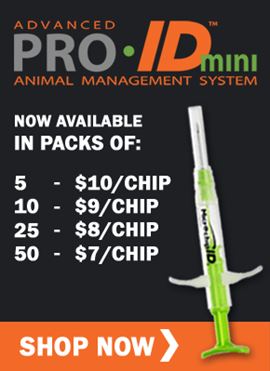
Dogs and Worms: What You Should Know
In many parts of the world, canines are likely to contract parasitic worms if preventative actions aren’t taken. The infestation levels may be low enough for a dog’s body to build up an immunity towards the parasites, but sometimes the infestation will take root and cause a number of health issues, such as lethargy, anemia, lack of appetite, and even death in some cases.
Among the different types of worms that affect dogs, the most common are heartworms, tapeworms, roundworms, whipworms, and hookworms. Thankfully, many worm infestations can now be successfully treated with modern veterinary practices and medicines. But, as a responsible owner, it’s important to pay attention for signs that may indicate a parasitic infestation, so that your dog can begin receiving necessary treatment sooner than later.
Symptoms of worm infestation in dogs
- Vomiting: A dog that has worms may throw up, and you might be able to see roundworms in the vomit.
- Lethargy: When active dogs become lethargic and altogether less energetic than before, it could be a symptom of worms.
- Coughing: Dogs with heartworms, hookworms, and roundworms often develop a cough, especially in advanced stages.
- Diarrhea: Diarrhea and soft stool can also occur. In fact, hookworm infested dogs may pass bloody stool.
- Bloated appearance: If you think your dog looks bloated or pot-bellied, you might want to have your veterinarian check him or her for an intestinal worm infestation.
- Loss of weight: Weight loss is another indication that your dog may have contracted worms, and this is especially true in the case of whipworm and tapeworm.
- Altered appetite: Roundworm contractions often result in a lack of appetite. On the other hand, worms, in general, tend to pilfer the nutrients meant for the dog, resulting in an increased appetite in your Fido.
- Lackluster fur: If you see the dog’s coat getting duller and drying out, it could be a sign of infestation. A healthy pooch should have a thick, shiny coat.
If you find any of the above symptoms in your dog, it’s time to schedule a trip to the vet.

Worm medicines for dogs
As mentioned before, most of the worms that can affect your dog can be treated with medication. Medicines that treat worm infections in dogs (also other animals and birds) are known as dewormers. Worms usually live in the dog’s intestines, and these dewormers help to paralyze the parasites so they can be flushed out of the body.
Types of dog worms
Here are five of the most common worm parasites to look out for.
- Heartworms: These are spread between dogs by way of mosquito bites. They usually make their residence in the dog’s heart and its arteries. Heartworm infestation is deadly if left untreated, and treatment is neither inexpensive nor guaranteed to save a dog’s life.
- Whipworms: They live at the conjunction point of the large and small intestines. Dogs usually contract whipworms from socially grooming each other and also from contaminated soils. These worms suck blood from the intestinal areas and result in bloody diarrhea.
- Hookworms: They dwell in the small intestine of dogs. Adult dogs get hookworm infection by way of licking themselves clean or directly through their skin. Puppies usually get the infection from the mother and can die if treatment is not swiftly administered. Malnutrition and weakness are common symptoms in fully grown dogs.
- Roundworms: This can be a severe infection in adult dogs and puppies alike, with the latter at a greater risk of losing their lives as a result. Roundworms are the most common parasites to affect dogs, which is why deworming is so important, especially since roundworms can attack humans as well.
- Tapeworms: These get attached to the intestines and steal nutrients from the foods that the dog eats. Tapeworms are constituted of small parts, each being about the size of a grain of rice. They can be visible around the dog’s anus sometimes and are passed in fecal matter. Effective methods of treatment include tablets and injections.
How to prevent worms in dogs
As the adage goes, an ounce of prevention is worth a pound of cure. Here is what you can do to help guard your dog against parasitic worms.
- Make yearly visits to the vet
- Keep puppies that are of a proper age, as well as all adult dogs (except pregnant dams), on a regular preventative that controls intestinal parasites and heartworms
- Feed your dog only well-cooked meat
- Ensure runs are kept on cement or other dry surfaces, and that these surfaces are cleaned and disinfected daily
- Disallow your dog from roaming alone, since feeding on carrion will increase its chances of worm infestation
- Do a pest control of your house to keep lice, mice, and fleas at bay
It’s important to remember that prevention is far more useful than doing nothing, but no preventative steps can completely ensure a dog’s protection. If you suspect it has got worms in its system, even if you took all the proper precautions, take your dog to the veterinarian immediately to nip the ailment (whatever it may be) in the bud.


















